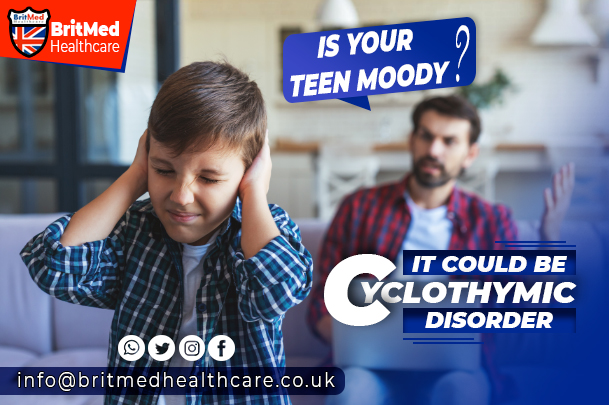Is Your Teen Moody? It Could Be Cyclothymic Disorder
Are you worried about your teenager’s sudden mood swings? Do you feel like they’re constantly shifting from one extreme to another, leaving you feeling frustrated and concerned? If so, you’re not alone. Many parents struggle to understand and manage their teenager’s moodiness, but it could be more than just teenage angst. It could be cyclothymic disorder.
What is Cyclothymic Disorder?
Cyclothymic disorder is a type of mood disorder that is characterized by episodes of depression, anxiety, and irritability, which are interspersed with periods of normal mood. Unlike major depressive disorder, which is a more severe and prolonged condition, cyclothymic disorder is often less severe and may not interfere with daily life. However, it can still have a significant impact on a teenager’s relationships, academic performance, and overall well-being.
Symptoms of Cyclothymic Disorder
The symptoms of cyclothymic disorder can vary from person to person, but they often include:
– Mood swings that are unpredictable and uncontrollable
– Episodes of depression or anxiety that can last for weeks or months
– Irritability and emotional reactivity
– Difficulty sleeping or insomnia
– Changes in appetite or weight
– Loss of interest in activities that were once enjoyed
– Feeling restless or on edge
Causes of Cyclothymic Disorder
While the exact causes of cyclothymic disorder are not fully understood, research suggests that it may be linked to a combination of genetic and environmental factors. Some potential triggers include:
– Family history: If one or both parents have a mood disorder, their child may be more likely to develop cyclothymic disorder.
– Hormonal changes: Hormonal fluctuations during puberty can contribute to mood swings and irritability.
– Stress: Chronic stress can exacerbate mood swings and increase the risk of developing cyclothymic disorder.
– Sleep deprivation: Lack of sleep or disrupted sleep patterns can lead to irritability and mood swings.
How to Manage Cyclothymic Disorder in Teens
While cyclothymic disorder is a chronic condition, it can be managed with the right treatment and support. Here are some strategies that may help:
– Cognitive-behavioural therapy (CBT): This type of therapy can help teenagers identify and change negative thought patterns and behaviours that contribute to their mood swings.
– Medication: Antidepressant medications, such as selective serotonin reuptake inhibitors (SSRIs), can help regulate mood and reduce symptoms of depression.
– Lifestyle changes: Encouraging healthy sleep habits, regular exercise, and a balanced diet can help reduce symptoms of cyclothymic disorder.
– Family therapy: Working with a therapist to develop communication skills and coping strategies can help improve relationships within the family.
Conclusion
Cyclothymic disorder is a common condition that can affect teenagers, causing significant distress and impairment. While it’s not easy to manage, there are effective treatments and strategies that can help. By understanding the symptoms, causes, and management options for cyclothymic disorder, parents and healthcare providers can work together to support teenagers in managing their mood swings and improving their overall well-being.
If you’re concerned about your teenager’s mood swings, consult with a mental health professional who can assess their symptoms and provide guidance on the best course of treatment. With the right support and treatment, it’s possible to manage cyclothymic disorder and improve your teenager’s mental health outcomes.
References:
https://www.mayoclinic.org/diseases-conditions/cyclothymia/symptoms-causes/syc-20371275
https://my.clevelandclinic.org/health/diseases/17788-cyclothymia
Websites:
Britmed Healthcare: https://britmedhealthcare.co.uk/
Nightingale Hospital: https://www.nightingalehospital.co.uk/
Top Doctors: https://www.topdoctors.co.uk/doctor/ahmed-el-missiry
You can also book, Contact us on WhatsApp 08009708017

